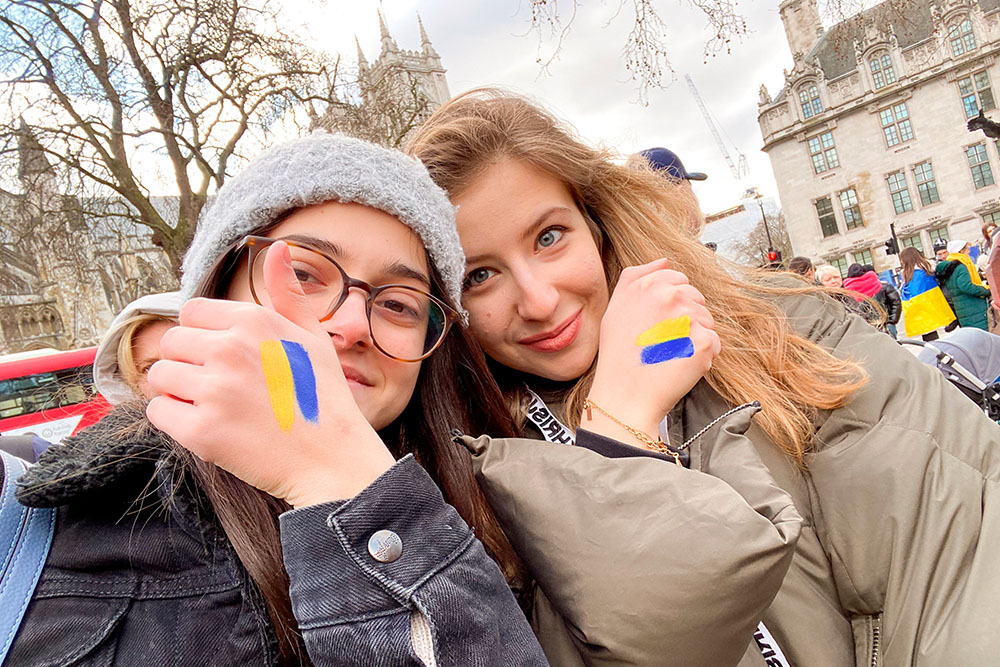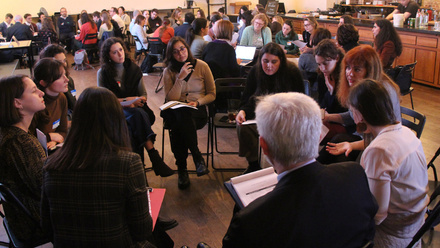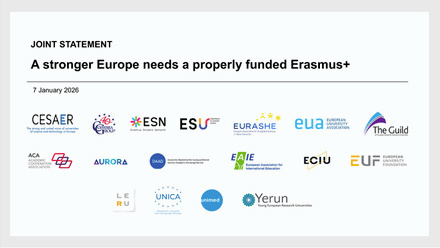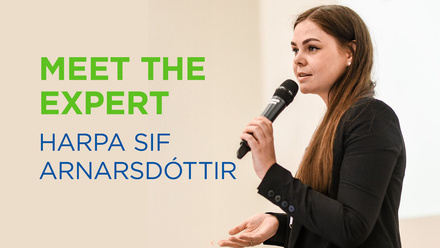Erasmus+ and the new academic year in Ukraine

With the 2022–2023 academic year just underway in Ukraine, students, educators and institutional leaders are working hard to manage a challenging situation. Higher education institutions generally – and internationalisation activities, specifically – face serious and persistent challenges as a result of the ongoing war being waged by Russia against Ukraine. Even still, there are reasons for optimism. Drawing on a history of enthusiastic involvement in the Erasmus+ programme, and buoyed by the potential of new approaches and opportunities, Ukraine’s international education community has entered the new academic year with energy and resolve to keep its important work moving forward.
A strong starting point
Since their initial involvement in Tempus in 1994, Ukrainian higher education institutions have been among the most active participants in the EU’s education and youth programmes. For example, as part of the Eastern Partnership Region Countries, Ukraine is always among the top 10 countries with the largest number of funded projects. Ukrainian higher education institutions are also highly active in Erasmus+ activities connected to international (credit) mobility, capacity building and Jean Monnet Actions.
A wider transformation of the Ukrainian higher education system is possible coming out of the war, and the Erasmus+ Programme will play a key role
Access to the EU programmes’ highly useful resources, projects results platforms and professional networks provides opportunities for further synergies and wider impacts. Indeed, over the years, Ukraine’s involvement in programmes such as Tempus, Erasmus Mundus, Jean Monnet and Erasmus+ have had a meaningful impact on the implementation of higher education reforms in the country and, moreover, established invaluable people-to-people contacts and strong institutional partnerships. Since 2021, even more collaboration has been made possible with the expansion of Erasmus+ opportunities to include secondary schools, vocational education and training programmes, and the higher and adult education sectors.
New opportunities and creative solutions
In April 2022, the European Commission designed a special guide for Ukraine and applied flexibility to projects in light of the crisis caused by the Russian invasion. These adjustments made it easier to provide timely help to those students and staff fleeing from the country, and went far beyond just universities, to include secondary schools, vocational education and training, adult education providers and programmes for young people.
This kind of flexibility was critical for responding effectively to the challenges imposed by the current situation. For instance, the Jean Monnet Action organised an additional call for those Ukrainian universities who were unable to submit proposals before the 2022 deadline due to the war. Redistribution of additional EU Programme funds to Ukraine due to the termination of participation by state-controlled organisations from Russia and Belarus has helped fund more grants for mobility, as well as Jean Monnet and cooperation projects. Thus, 94 Jean Monnet projects were funded for Ukraine under the 2022 call for proposals compared to 121 projects funded in the period 2014–2020 and 64 Ukrainians received Erasmus Mundus Joint Master Programme Scholarships versus 36 students funded for the previous year.
At pedagogical universities, students, teachers and education researchers have received wider access to resources and networks within the eTwinning and SchoolEducationGateway initiatives and platforms such as EPALE, the War in Ukraine – student support centre (co-funded by Erasmus+) and the EU’s European Youth Portal, are among key resources responding to the needs of Ukrainian students and young people. Elsewhere, the European Universities Alliances have expanded their partnerships with associated partners in Ukraine, providing wider access to alliance resources. Ukrainian universities and their employees have also become members of various professional networks such as the European Association for International Education, the European University Association and others, and have gained greater access to their events and data. The Erasmus Students and Alumni Networks have mobilised their forces actively in support of Ukraine, too.
Ongoing challenges
Despite the nimble response from the EU and other allies, higher education in Ukraine continues to face serious challenges and threats. Universities situated in the currently occupied territories were relocated to other regions of Ukraine, but some staff and students stayed behind and remain under constant threat; some of them have fled abroad. Indeed, all universities have faced the problem of student outflow and the migration of teachers and researchers abroad, as well as the reduction of state funding for higher education, requiring them to find other sources to fund their operations. The infrastructures of many universities are destroyed or damaged, with limited access to the premises and online resources.
Erasmus+ project activities are influenced by martial law: technically, male students and staff aged 18–60 years old are not allowed to exit the country
Erasmus+ project activities, especially those involving mobility, are influenced by martial law: technically, male students and staff aged 18–60 years old are not allowed to exit the country. University students are exempt from military service for the period of their study and academic staff has the right for the reservation from mobilisation, however it does not provide them automatic permission to cross the border. Obtaining student visas to certain countries comes with a substantial delay, or in some cases has become impossible.
In response to these challenges, Ukrainian universities have been working actively to develop innovative solutions, notably in relation to digitalisation, blended and virtual learning and mobility, and dynamic cooperation with international partners.
Priorities and future positioning: a key role for Erasmus+
Within Erasmus+ 2021–2027, Ukrainian higher education institutions are now heavily focused on strengthening digital and internationalisation capacity to respond to the challenges caused by the war. The national strategies and platforms for the recovery plan provide key ideas for future projects with a focus on both the reconstruction and transformation of the Ukrainian education sector.
Specifically, in cooperation with universities from EU Member States and beyond, Ukrainian higher education institutions are prioritising the development of innovative curricula, digitalisation, inclusion, excellence in teaching and learning, and both quality enhancement and quality assurance. The aspirations for the future are high and require a commitment now to work on a range of fronts.
Ukrainian higher education institutions, along with their staff and students at home and abroad, have effectively leveraged international cooperation to respond to the urgent challenges of the war and continue to assure the quality of higher education. In spite of the unsafe situation across the country, Ukraine’s international cooperation activities and the implementation of Erasmus+ projects continue apace and stand out as ever more important to the country’s efforts to remain connected with the world and prevail in the face of adversity.
Ultimately, a wider transformation of the Ukrainian higher education system should be possible coming out of the war, and the country’s dynamic and ongoing engagement with the Erasmus+ Programme will play a key role in this process. We are stronger together and can make a difference in this changing world! Stand with Ukraine!






